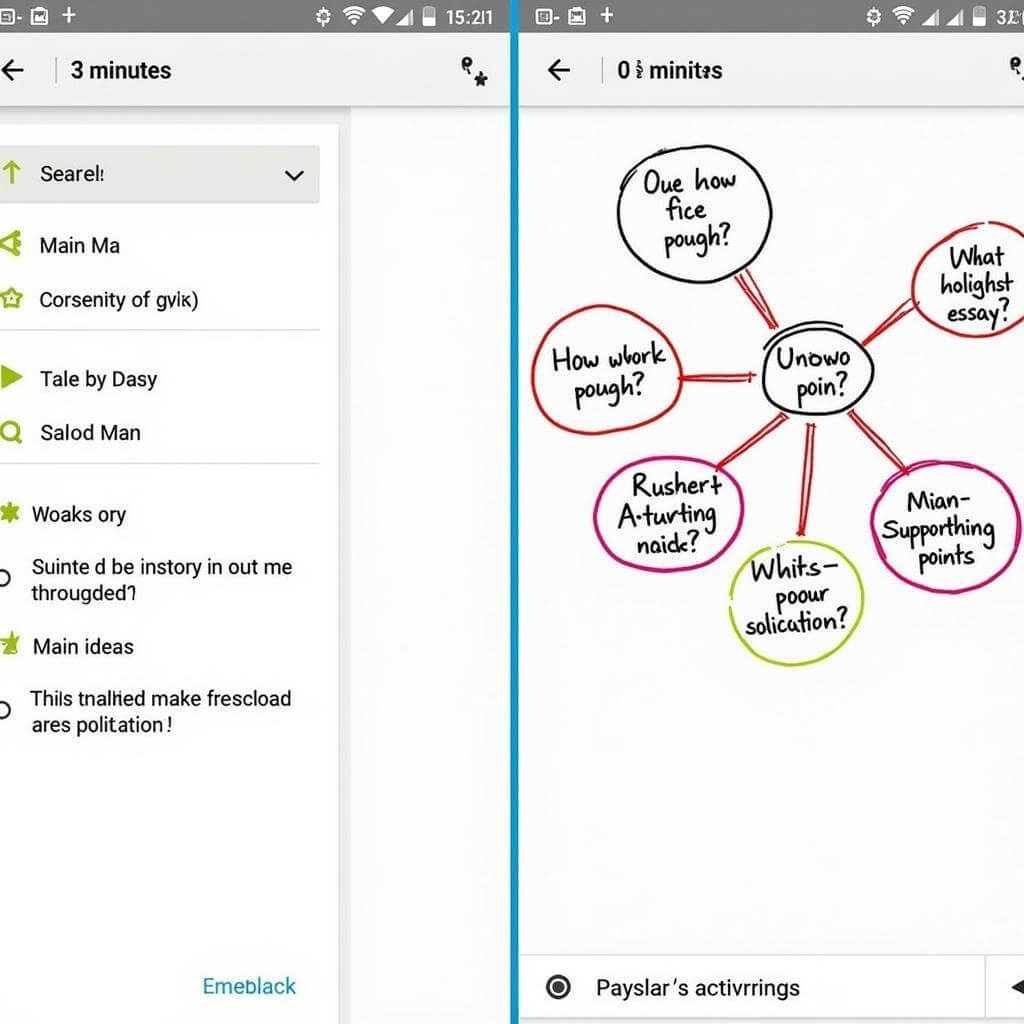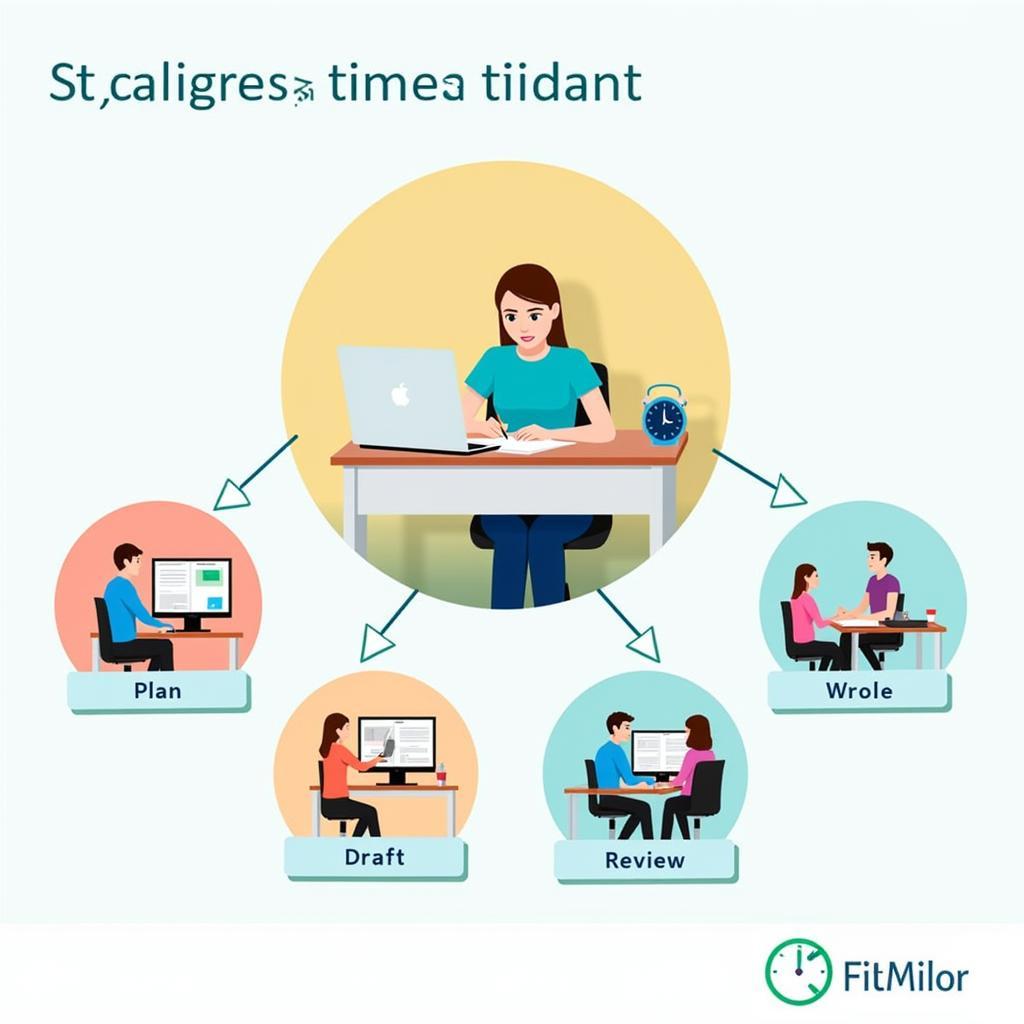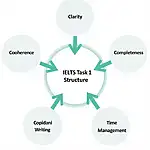Time management is crucial for success in IELTS Writing tasks. Many test-takers struggle to complete their essays within the given time frame, often sacrificing quality for speed. This comprehensive guide will provide you with expert strategies to manage your time effectively and maximize your performance in both IELTS Writing Task 1 and Task 2.
Understanding the Time Constraints
Before diving into specific strategies, it’s essential to understand the time allocation for IELTS Writing:
- Total time: 60 minutes
- Task 1: 20 minutes (150 words minimum)
- Task 2: 40 minutes (250 words minimum)
Proper time management ensures you can address all parts of the question, develop your ideas fully, and have time for proofreading.
Strategies for Effective Time Management
1. Plan Before You Write
Spend the first 2-3 minutes planning your essay. This investment pays off by providing a clear roadmap for your writing.
- Task 1: Analyze the visual information and identify key trends or comparisons.
- Task 2: Brainstorm main ideas and supporting points for each paragraph.
 IELTS Writing Time Management Planning
IELTS Writing Time Management Planning
2. Follow a Strict Time Allocation
Adhere to a specific time breakdown for each task:
Task 1 (20 minutes):
- Planning: 2 minutes
- Writing: 15 minutes
- Reviewing: 3 minutes
Task 2 (40 minutes):
- Planning: 5 minutes
- Writing: 30 minutes
- Reviewing: 5 minutes
“Sticking to a predetermined time allocation is like following a well-choreographed dance. It keeps you moving smoothly through each stage of the writing process,” says Dr. Emma Thompson, IELTS Writing Specialist.
3. Use Paragraph Structures as Time-Saving Templates
Familiarize yourself with effective paragraph structures to save time during the exam:
- Introduction: Hook, background, thesis statement
- Body paragraphs: Topic sentence, explanation, example, concluding sentence
- Conclusion: Restate main points, final thought
By internalizing these structures, you can focus more on content rather than organization during the test.
4. Practice Timed Writing Regularly
Regular practice under timed conditions is crucial for improving your speed and efficiency. Set a timer and complete full-length practice tasks to build your time management skills.
 IELTS Timed Writing Practice Session
IELTS Timed Writing Practice Session
5. Develop a Personal Shorthand for Planning
Create a system of abbreviations and symbols for quick note-taking during the planning phase. This can significantly reduce the time spent on initial brainstorming.
For example:
- “+” for advantages
- “-” for disadvantages
- “eg” for examples
- “→” for results or consequences
6. Prioritize Task 2
Since Task 2 carries more weight in scoring and requires a longer response, allocate more time to it if needed. If you finish Task 1 early, use the extra time for Task 2.
“Task 2 is the heavyweight champion of IELTS Writing. Give it the respect—and time—it deserves,” advises Mark Richards, IELTS Prep Coach.
7. Use Topic Sentences Effectively
Start each paragraph with a clear topic sentence that addresses part of the question. This helps you stay focused and saves time by providing a clear direction for each paragraph.
8. Avoid Overcomplicating Your Language
While it’s important to showcase your vocabulary, don’t waste time trying to use overly complex words or structures. Clear, concise language is often more effective and time-efficient.
common mistakes to avoid in IELTS writing include overcomplicating language, which can lead to errors and time wastage.
9. Practice Speed Reading for Task 1
For Task 1, practice quickly interpreting graphs, charts, and diagrams. The faster you can understand the visual information, the more time you’ll have for writing.
10. Leave Time for Proofreading
Always reserve the last few minutes for reviewing your work. Focus on:
- Correcting obvious grammatical errors
- Ensuring you’ve answered all parts of the question
- Checking word count (quickly estimate 10 words per line)
Dealing with Time Pressure
If you find yourself running out of time, don’t panic. Here are some strategies to help you count on when time is tight:
-
Prioritize content over length. It’s better to have a well-developed, slightly shorter essay than a longer one with underdeveloped ideas.
-
Use simple but accurate language. Don’t waste time searching for complex synonyms.
-
If necessary, simplify your conclusion. A brief summary is better than no conclusion at all.
-
Turn off your internal editor temporarily. Focus on getting your ideas down first, then review if time allows.
Conclusion
Effective time management in IELTS Writing tasks is a skill that can be developed with practice and the right strategies. By planning efficiently, allocating your time wisely, and staying focused, you can improve your performance significantly. Remember, the goal is not just to finish on time, but to produce well-structured, coherent essays that showcase your English language skills.
Don’t let time pressure make your essay fall apart. Instead, use these strategies to stay calm and composed throughout the writing process. With consistent practice and application of these techniques, you’ll be well-equipped to tackle the IELTS Writing tasks confidently and effectively.
FAQ
How strict is the time limit for IELTS Writing?
The time limit is strictly enforced. When 60 minutes are up, you must stop writing immediately.
Should I spend more time on Task 2 since it’s worth more marks?
Yes, it’s advisable to allocate more time to Task 2 as it carries more weight in scoring and requires a longer response.
What if I can’t finish my essay in time?
Focus on completing your main points and conclusion, even if brief. A complete essay structure is better than an unfinished one.
Is it better to write more or focus on quality within the time limit?
Quality is more important than quantity. Aim to meet the minimum word count with well-developed ideas rather than writing excessively.
How can I improve my writing speed for IELTS?
Regular timed practice, developing efficient planning techniques, and familiarizing yourself with common essay structures can all help improve your writing speed.


